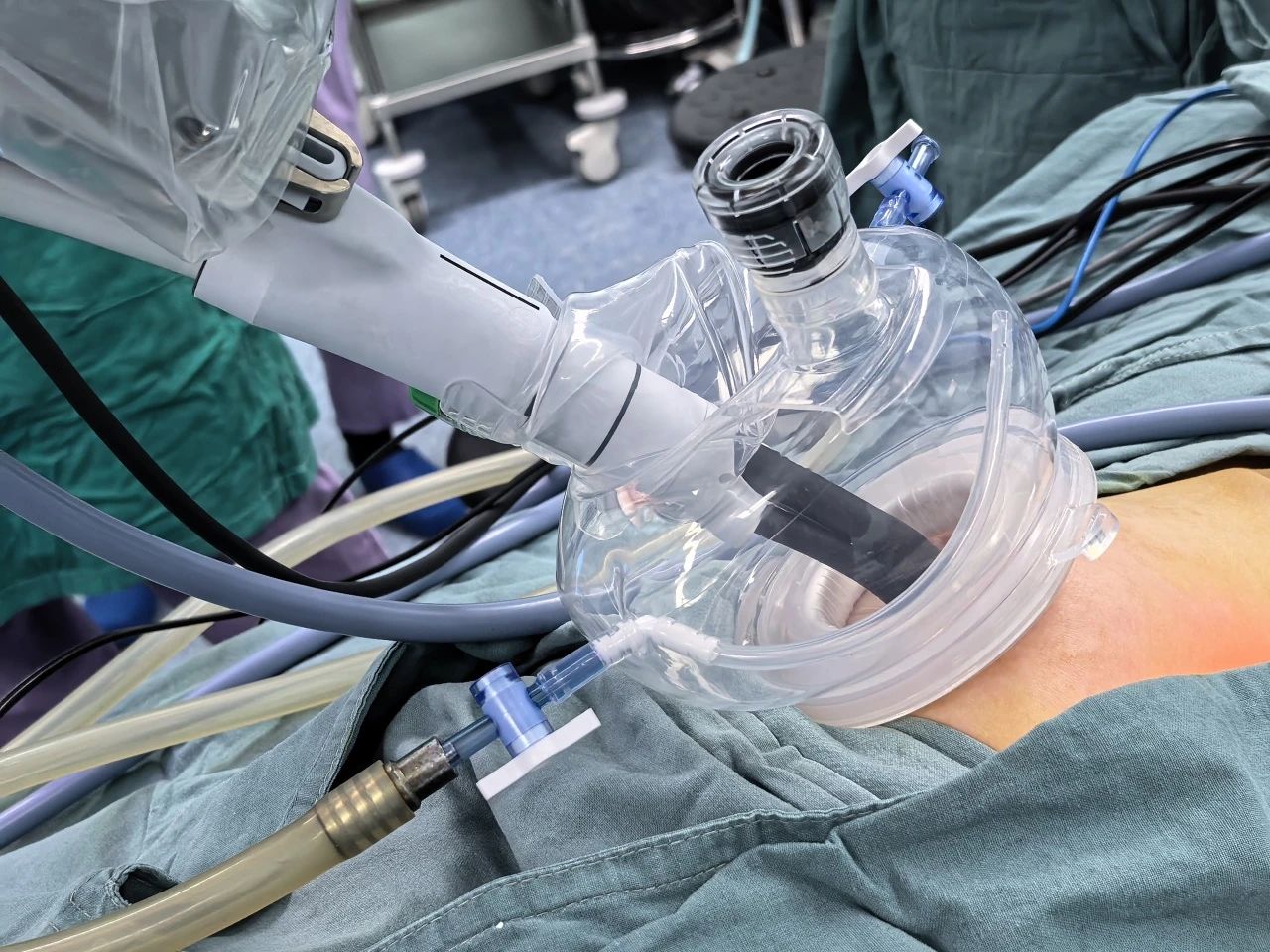

Recently, the Department of Urology at the National Children's Medical Center and Shanghai Children's Medical Center, affiliated with Shanghai Jiao Tong University School of Medicine, successfully performed a precise resection surgery for testicular tumor on a 6-month-old infant. This marked the 20th procedure conducted using the domestically developed Surui single-port robotic system since its clinical deployment in pediatric urology at the center earlier this year. Currently, this surgical technique is gaining recognition among pediatric surgeons and patient families for its "enhanced precision, minimized trauma, and optimized outcomes," receiving widespread acclaim and positive feedback.

A 6-month-old patient, Yunyun (a pseudonym), was admitted for evaluation of a testicular tumor. Following a series of meticulous examinations, the initial diagnosis indicated a malignant tumor. Although pediatric testicular tumors are rare, they progress rapidly, and early intervention leads to better prognoses. Given the patient’s extremely young age, the urology team conducted thorough discussions on treatment strategies. Traditional surgery involves tumor removal through an inguinal incision, but intraoperative compression risks spreading tumor cells via the bloodstream, increasing metastasis potential. Considering the infant’s delicate anatomy and the urgency of the condition, the medical team opted for advanced single-port robotic laparoscopic technology, aiming to achieve maximal therapeutic efficacy with minimal trauma.
During the procedure, the surgeon introduced the domestically developed robotic system through a single small umbilical incision. Its unique "snake-like arm" instruments demonstrated flexible rotation, enabling precise targeting of the surgical area under high-definition 3D imaging guidance. The surgery first blocked venous return to the testis, eliminating the risk of tumor cell dissemination through hematogenous spread caused by intraoperative traction or compression. Simultaneously, the lesion was completely excised. The entire procedure resulted in less than 3 milliliters of blood loss, with the umbilical incision healing to become nearly invisible. The infant recovered smoothly postoperatively, resuming feeding and normal activities the following day. Pathological examination confirmed complete tumor resection, optimally preserving the child's physiological functions and future quality of life.
In February of this year, the Surui surgical robot, jointly developed by Shanghai Children's Medical Center and domestic medical enterprises, was officially approved as a medical device for clinical use after completing its clinical research phase. Pediatric organs are relatively fragile, and their limited body cavity space demands higher functional precision from surgical instruments and greater surgical expertise from doctors. During the two-year clinical research phase, Shanghai Children's Medical Center had already utilized the domestically developed single-port laparoscopic surgical robot to explore over ten types of pediatric surgical procedures.
Looking ahead, the center will further deepen exploration and innovation in high-precision and cutting-edge technologies, continuously advancing clinical research and innovative practices for domestic medical devices and pharmaceuticals. Concurrently, the hospital plans to establish a national training base for operating domestically developed surgical robots, aiming to collaborate with peers nationwide in delivering safer, minimally invasive treatment outcomes to young patients and their families.

 Important Notes
Important Notes
The SHURUI Single-port Endoscopic Surgical System (SR-ENS-600), developed and produced by Beijing Surgerii Robotics Company Limited, has obtained the CE marking for urologic laparoscopic surgical procedures, gynecologic laparoscopic surgical procedures, general laparoscopic surgical procedures, and thoracoscopic surgical procedures. It is intended for use by trained surgeons in an operating room environment in accordance with the representative, specific procedures set forth in the User Manual.
Safety and Performance Information
Beijing Surgerii Robotics Co., Ltd. owns Surgerii®, SHURUI®, and other trademarks and may not be used without permission.